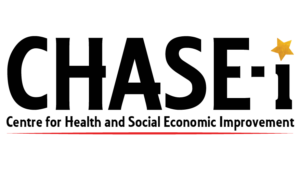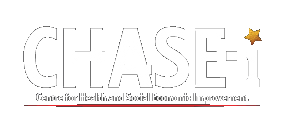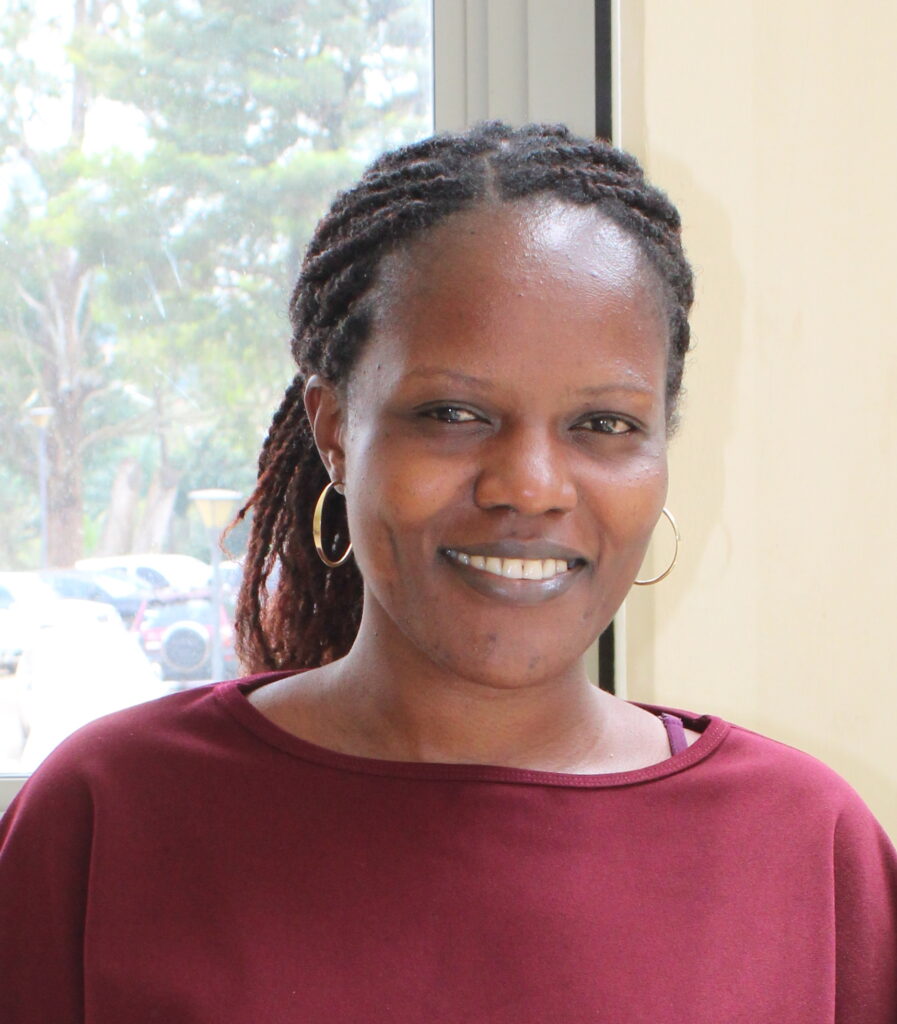“Refugees” – rethinking the nomenclature that separates us.
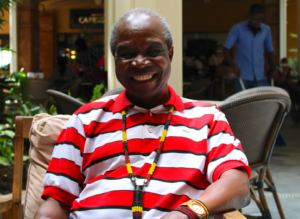
George Piwang-Jalobo
- November 8, 2020
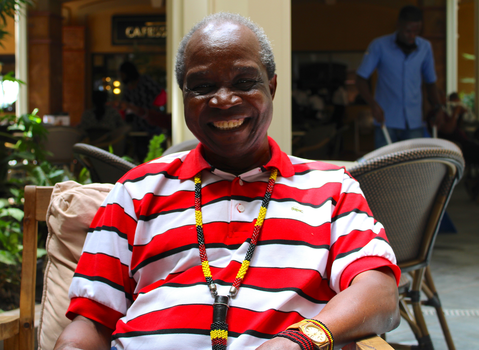
Mr. George Piwang -Jalobo
The Labels, Nomenclature and Narratives that Separate us
The acronym “REFLECT” in COVID-19 and its anchor on the refugee experience must start with reflecting why we continue using the nomenclature of “refugees”. We need look at the refugees in Uganda as they really are – majority of them come from our neighboring countries of South Sudan, Rwanda, Congo and Burundi. These are communities that have their kin in Uganda and what makes them refugees is the connotation of vulnerability; of not belonging and yet these are our African brothers and sisters. It’s about time that we start thinking afresh because we continue calling our brothers and sisters who are forced to migrate to Uganda as refugees with a connotation of vulnerability and un-belonging; what we call “otherness” and I don’t buy that. A south Sudanese who is registered in a university in Uganda is not called a refugee. A Congolese business man who is dealing in gold and has a resident permit in Uganda is not called a refugee. So, REFLECT must first start right there and especially for us in Africa now, COVID has come with a blessing in disguise for us to start rethinking certain labels, nomenclatures, narratives that we have been carrying without thinking or reflecting about them. That is my starting point and I hope this research study will contribute to a new nomenclature of calling people who are forced to leave their home countries and come to Uganda.
I would prefer to call them “forced migrants” because its less stigmatizing; or maybe “people seeking safe spaces”. That’s more wholesome because COVID caused African countries; Uganda inclusive to close their boarders. It has taught us the expense of that in our economy because all our economy is constricted and we are now trying for reopening the boarders. There is free trade now but this is coming at the same time Africa is embarking on the African free trade era but its COVID that made us appreciate that closed boarders are expensive to all our economies and having open borders is good for all of Africa and COVID disrupted the global supply and value chains. It has taught us to think locally so we have the talks of import substitution and establishing a regional supply chains and value chains. In the Great Lake’s region, East Africa should have our borders open if we are going to survive economically. We should establish regional value chains and supply chains; in otherward Uganda trading with DRC, Rwanda and Burundi. That is the blessing of COVID that has taught us that actually if we continue with the colonial balkanization that Uganda stops at the border in Rwenzori, West Nile then on the other side it starts DRC or Rwanda. Yet these are the same people like in my case, the Alur Luo community in Tudu province of DRC are three times the number of the Alur Luo community in greater Nebbi; and West Nile became part of the Uganda British protectorate in 1914. Before that we were part of the Belgium-Congo. Because of our marginalization we have had so many challenges especially with our education. The first A level education in West Nile was in 1971. This was 10 years after independence, because we were remote and were part of the Belgium-Congo. We had challenges catching up with the [English] language – which was the mode of training. Tertiary education started in 1983 especially business with Pakwach College of Commerce so before that if a student of West Nile needed A level, they had to come to the rest of what they call Uganda and not Congo. It’s like for us who were in West Nile and later became part of Uganda were permanent refugees from Congo and that’s where the nomenclature refugees have to be rethought, reflected and reimagined.
If you asked refugees what they want to be called – you might take time getting a response simply because they haven’t even been encouraged to think about it. Because they have no choice on it, it is by their registration and that’s it – the “refugee” label. When you look at a Congolese from Tuli region province that has fled to Uganda in contrast to a Congolese internally displaced in the camps in Bunya. Their level of vulnerability will vary because of the agencies and governments that supply them but they are basically the same people. The one in Congo is not called a refugee but said to be internally displaced but he may he even have worse vulnerability than the ones that have crossed over to Kyaka and other settlements in the country. If the same citizens of Congo are classified differently when they are going through the same experience we don’t help their situation when we are looking at their lived experience under COVID.
So, what does that mean? Researchers should be the first ones to reflect on how helpful studies like REFLECT will be in rethinking certain things. Especially baggage that stigmatizes and make them vulnerable; the kind that punishes the so-called refugees even more because they can never see any hope. How we perceive and call them makes them think that their condition is permanent and unsolvable – which should really not be the target. The refugees should have hope to go back home. The forces that drove them from their home should end. We should all be working towards that.
Some of those things might appear to be beyond our control, but COVID is the same thing that has brought this realization that Uganda and DRC have to open their borders and have peace. Rwanda and Burundi have to open their borders and have peace. South Sudan should be pacified so that South Sudanese can go back to their country and be more productive. They have just signed an agreement to come together because part of the problem was fighting within the different groups in South Sudan; and I am hopeful about it. As long as the leaders who had the resources were living safely in neighboring countries like Uganda and Kenya, the plight of the people who were forced to live was not being taken seriously. That’s the example of the preliminary findings in your research where the porous border means that part of the family is in Uganda Bidibidi [settlement] in Adjumani and another part of the family is in Uganda. It becomes difficult to provide holistic services to family and community units because of that. The funders should aim at this study making recommendations for refugees not to be sustainable in Uganda but to prepared to return home. So, the funders must look at push factors of the refugees from their home country and also at the same time look at the pull factors of the refugees to return home and fund those.
on Refugee “Livelihood” Programmes
I prefer to use “gainful economic engagement” instead of “livelihood”. Gainful economic engagement is the one that makes a person benefit. Even that happens in a refugee community where you find a small kiosk by refugee people and you have small tailoring or wood workshop. You have refugees taking photos and doing fine art. That is what I call a gainful economic engagement. That can start in the refugee settlements but also continue when they return because they show skills that they have got which is profitable. I’d rather think of scaling that. The funders who are funding this study should recognize that the level of what they are funding should be a start and that should make provision for scaling up so that after this study you make recommendations interventions that have to be implemented by bringing all the stakeholders together, government sectors, development partners, community organizations. We should let this study scale up to the next level so that the refugees are supported not to be permanent in their host countries or communities but will be skilled and ready to go home where they can make significant contribution and meaningfully contribute to reversing factors that made them refugees in the first place. It brings economic gain to their country and contributes to the regional development. Now we can see that economic development in Uganda by refugees will also benefit south Sudan because south Sudan and Uganda are going to have an open border so why don’t we call the small refugee business an investment instead of saying livelihood? The real test of investment is profit. The refugees in the refugee communities are entitled to profit, to improving themselves, to skills – not just survival and coping skills as is currently is the focus of nearly all livelihood programs that have a narrow focus on the “survive not thrive” mentality. When you think about livelihood, you don’t think about gainful economic engagement for refugees. You provide skills for coping but not profit. It is the same skills because a dressmaking skill can become a tailoring and design enterprise. It starts with tailoring. And you have to think of scaling it up in terms of investment and not only cutting and tailoring all the time. A roasting maize teacher who was profiled on BBC, if she was someone else that would be entrepreneurship. It doesn’t stop at selling roasted maize. This is where you see the limit of these nomenclatures. There are people that benefit from this vulnerability. Even the refugees are smart and a few of them are capitalizing on it, sometimes to their own detriment. That is why I love the acronym REFLECT that through the whole spectrum there will be reflection. That should start with the research team and spread out to everyone to first stop and reflect.
on Service Delivery
The Ministry of Health and government generally must not discriminate in terms of service delivery between refugees and host communities. Uganda has an integrated system but that must be strengthened because the resentment that host communities have, especially in host communities where refugees are given better services than the host communities, breeds conflicts. So, the integrated must not stop in policy documents but must translate in real services so that what is obtained in refugee communities must be also obtained in the host community. In otherward, refugees must be fully partaking of the health services in the community. But can they speak the language? If not, are there provisions for language translation in service delivery like at a health facility? What about cultural norms and values – do we really think about how that affects the healthseeking behaviour of refugees?

Mr. George Piwang providing insight into refugee matters to Dr Gloria Seruwagi the REFLECT Study PI
on “hard-to-reach” Geographical Locations
There’s the issue of “hard-to-reach” which keeps coming up. That is a very serious issue, especially in regards to rural and urban-based refugees. The refugees in Adjumani, Kyaka in Kyegegwa are in hard-to-reach places but refugees in Kisenyi are near to reach. That means that the center is in Kampala and the others are in the margins. This “hard-to-reach” issue is not geographical but the political economy. Because the political economy was placed where the colonial administration was at the centre. It doesn’t matter whether it is in the corner of the country or the centre; and that is how central Uganda came about. Central Uganda is not central in terms of distance from places like Karamoja, Kisoro and Arua. It is where the colonial seat of power is. Infrastructure was developed first here. First rail, road and then electricity so in terms of economic geography, it becomes the Lake Victoria crescent. The most developed, the highest GDP; it is the centre and not hard-to-reach; but Kitgum, Kyegegwa, Bidibidi is far out in the margins and therefore hard-to-reach. So, people will claim allowance because they have to start from the centre to go there. But there are people who live there. The refugees who are in Adjumani, Bidibidi and Kyegegwa are more vulnerable than the Somalis refugees that are in the city.
So, when you talk about the urban versus the rural refugee, there is also a long range of vulnerability and stigmatization associated with hard-to-reach and distance from the centre: “hard-to-reach” for who? The civil society, I think, is partly responsible for this nomenclature. It is a political economy; the same political economy that said that coffee and tea can do well in Buganda as cash crops but not in the north. You see, where the centre of political power was not the place where they got their security people. The security people came from hard-to-reach areas because they do not speak the language of the centre so in that way they can be used to control the people in the centre.
It has changed abit but the chord is so strong that people still say “I am marginalized” to mean someone is looking at themselves as someone from far away. He is not looking at himself as the centre of attention, action or being on the policy radar. The “hard-to-reach” concept must be debunked by this study because the refugees who are in rural areas fall in that category. How: can services to the refugees emanate from regional centers towards them? For example, how much decentralized are refugee services from the Office of the Prime Minister or from the UNHCR headquarters in Kampala?
Can that be scaled up so that the Kyegegwa refugee settlement Commandant doesn’t have to hear for the final word from Kampala but hear from Fortportal instead. So, the decentralization will be meaningful and serves even the refugees.
Everyone has to reflect. If they reflect then you should also give us some pointers from your findings. Say for example, education. The development partners are giving significant money for refugee education. How much of this is being dispersed or given to refugees from close to where they are? Developing partners and research funders can set that at funding level. They can put that as a condition. It is also capacity enhancing for local systems and structures, so that the district Inspector of Schools in Gulu or Adjumani is funded to inspect schools within the refugee community. Can the DHOs [District Health Officers] of refugee hosting districts say they are truly in charge of refugee health, or is the health of the refugees in the hands of purely an NGO which is implementing in the settlements? A whole DHO, who represents the government, might not know what is going on in his district which is proudly called a refugee-hosting district.
Here is the good thing about COVID, the policy must be evidence-based. Science must lead the way including policies for refugees. Most of the researches done are either researches of different interested groups for their own use but not for the benefit of the refugees. But because you are reflecting on these norms and want to come up with findings that will take interventions for refugees on a different level because COVID has brought us a new normal; your research needs to be evidence based. If you can do that then your research is going to have a better use for the refugees, communities as well as for government and developing partners.
Thank you for your time and insight on refugee matters.
You are welcome. Now Gloria; you are the Principal Investigator of this REFLECT study. Go get your team together and really REFLECT. Just like your study name urges us all – to REFLECT. Then come back and share findings so that the other stakeholders can also deeply reflect and hopefully act on these critical issues we have discussed. Then you can begin talking about achieving your intersecting point with the funders about improving humanitarian outcomes.
About George Piwang
George Piwang-Jalobo comes from the West Nile region of Uganda which hosts more than half of Uganda’s refugee population. He attended the REFLECT study launch and afterwards had a detailed discussion with the study PI on various issues relevant to the research.
